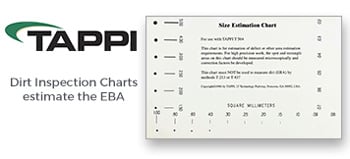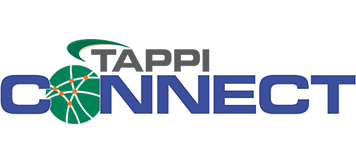The New Accountability: Rescue your company from mediocrity, Solutions!, Online Exclusives, September 2005, Vol. 88(9)
So what is accountability, anyway? It's a buzzword you hear all the time in business. People tend to say things like, "I'm holding you accountable for getting that report done." What they really mean is, "Complete this to-do list and let me know you did it." But according to Morrie Shechtman, this all-too-common approach-handing out assignments, standing over employees like a school marm, and giving metaphorical pats on the head-is really the opposite of accountability. True accountability is not about tasks and to-do lists; it's about establishing productive relationships… and it's the secret to success in the 21st century.
"In today's world we make money through relationships, not through performing
tasks," says Shechtman, author of Fifth Wave Leadership: The Internal Frontier
(Facts on Demand Press.) "The realities of the Information Age and the rapidly
changing global economy mean there are millions of competitors who can perform
any task you can perform. And that doesn't just mean entering data or making
widgets. It means legal research and plastic surgery, too. It doesn't matter
if you are a brilliant lawyer or a brilliant surgeon. If you're not good at
relationships, you can and will fail.
"When you care enough about people to invest in a caring, honest, challenging relationship with them, you breed accountability," he adds. "They see that you have confidence in them and that you have their best interest at heart. Accountability meets the self-interest of both parties-it is not about one party dictating to another."
The unprecedented nature of the 21st century workplace requires a commitment to what Shechtman calls "the new accountability." Accountability itself is not a new phenomenon, of course, but the all-pervasive need to embrace it and make it the center of your company is. If you as a leader don't foster an accountable culture-one filled with employees who have the capacity for self-analysis, adaptive learning, and a commitment to growth relationships-your company will not thrive for long. It may not even survive.
Accountability is a difficult concept to pin down. It is a mindset that manifests in various ways. Perhaps the best way to define an accountable culture is to look at it from different angles, much like the parable of the blind men describing the elephant. So what does an accountable culture look like? Shechtman offers the following insights:
- An accountable culture is about high expectations and challenges, not
complacency and coddling. Leaders in such companies have high expectations
for themselves and their employees. They raise those expectations every day.
Most people want to grow. They want to learn. They want to be challenged.
They don't want to do the same things over and over again like a hive
of mindless worker bees. "If you set an artificial cap on people's abilities,
you end up with a company full of drones," says Shechtman. "They may be intelligent
drones, but they're drones nonetheless. You end up with a culture of mediocrity."
- It's about internal challenges, not external ones. Accountability
means self-awareness. It means looking your own self-destructive patterns
in the eye. It means making a conscious decision that you're going to set
aside the emotional baggage that's keeping you from reaching your full potential
in business and in life. That's true of you and of your employees. "Everyone
in your organization must be able to look within and figure out what they
need to do in order to grow and change and break through to a new, more effective
level of performance," says Shechtman. "It is the job of the leader to help
everyone develop this internal focus."
- It's about confrontation and conflict, not agreement and harmony.
Make no mistake: holding people accountable is not easy. It means taking risks.
It means instigating uncomfortable conversations. It means expecting-and accepting-the
occasional emotional outburst. That's okay. Growth is usually painful. "If
you have a company full of conflict avoiders, you're in trouble," asserts
Shechtman. "The foundation of an accountable culture is honest, real-time
feedback. You have to be willing to tell people how you experience them, and
you have to be able to hear from them how they experience you. It's the only
route to growth relationships."
- It's about caring, not abandonment. At first glance it may seem cruel
to tell people the blunt truth as you see it. Look deeper, though, and you'll
see it's anything but. Honest feedback is an act of caring. It's about saying,
"I care enough about you to confront you with what you're not doing because
I believe you are better than that. If I didn't believe that, I would leave
you alone." Remember, says Shechtman, the opposite of love is not hate; it's
apathy. "If you don't hold people accountable, you are abandoning them," he
says. "That's real cruelty. Honest, caring feedback is how you invest in relationships."
- It's about whole life integration, not compartmentalization. Many
leaders hesitate to give honest feedback in the workplace because it seems
too "personal." Un-dealt-with issues may manifest in such serious ways as
alcoholism, say, or involvement in abusive romantic relationships. To those
of us accustomed to the personal/professional mindset, addressing such subjects
seems inappropriate. But according to Shechtman, there is no longer a firewall
between professional and personal. "All business is personal," he asserts.
"We all live blended lives. The personal issues your employees deal with-or
don't deal with-affect their work in powerful ways. It is bad business
to ignore them. And you certainly can't have growth relationships that way."
- It's about constant learning, not stagnation. We're moving into a
day and age where people are learning or teaching all the time. If you do
not have a work environment where people are learning, they leave. "Task"
environments will not attract the best and the brightest. Studies show it
takes 18 months to master a task. If after that point people aren't learning
anything new, they'll be bored out of their skulls. Bored people are not productive
people. "If your people aren't learning, your company is dying," says Shechtman.
"It's that simple."
As you might suspect, creating an accountable culture takes plenty of time and hard work. But it's not rocket science. Once you understand what accountability really means, you can dive right in and change the way you interact with your colleagues and employees. Don't delay.
"Start taking risks right now," Shechtman urges. "Give people honest, critical feedback about how they impact the relationships they're in. Tell them what the new accountability means and why it's so critical to their future. The blunt truth is that if you don't create an accountable culture, your company may not be around in ten, or five, or even two years. None of us can be transaction artists anymore. You have to find the courage to make the change. And you have to make it right now."
For more information:
Morrie Shechtman is an international change management consultant. He has taught
at distinguished universities throughout the United States, has worked as a
therapist and counselor, and now runs a successful management consulting company,
Fifth Wave Leadership. He has consulted with top executives in Fortune 500 companies
and has lectured internationally on personal transformation and productivity.
Fifth Wave Leadership: The Internal Frontier (Facts on Demand Press, $19.95)
is available at bookstores nationwide, major online booksellers, or directly
from the publisher by calling (800) 929-3811. To learn more, visit fifthwaveleadership.com.





